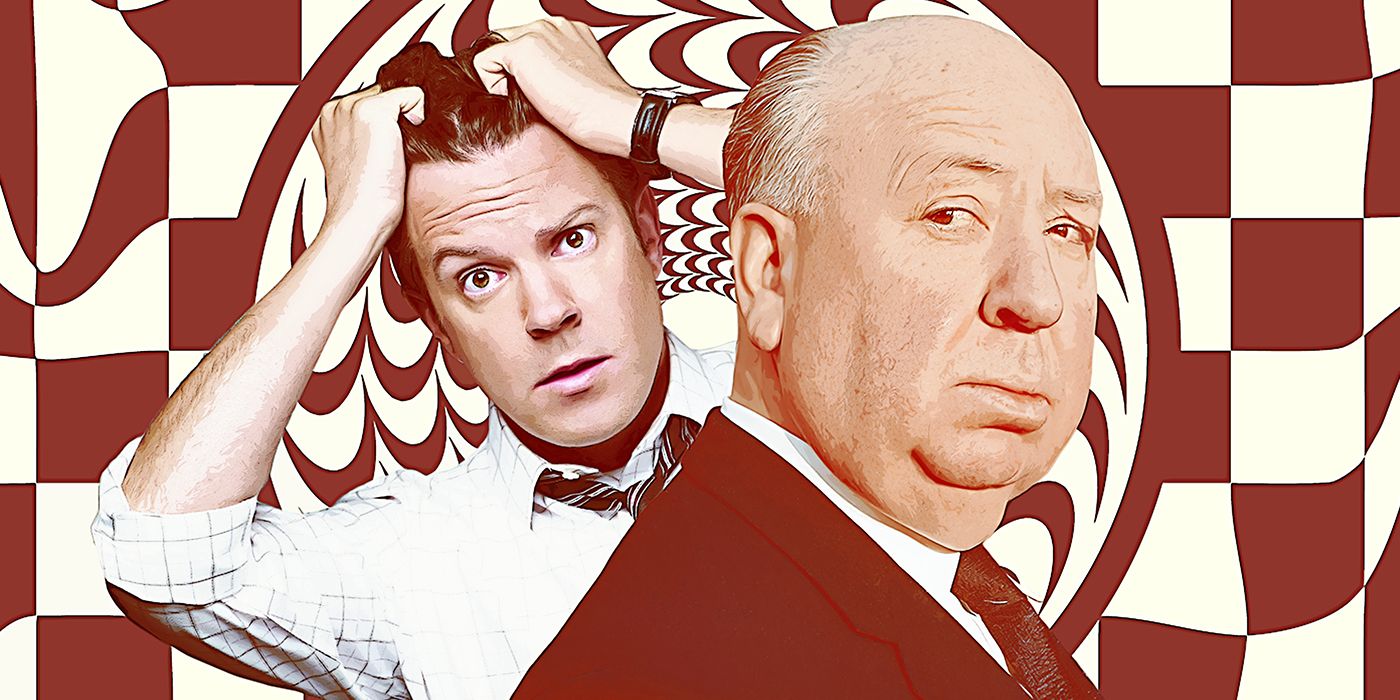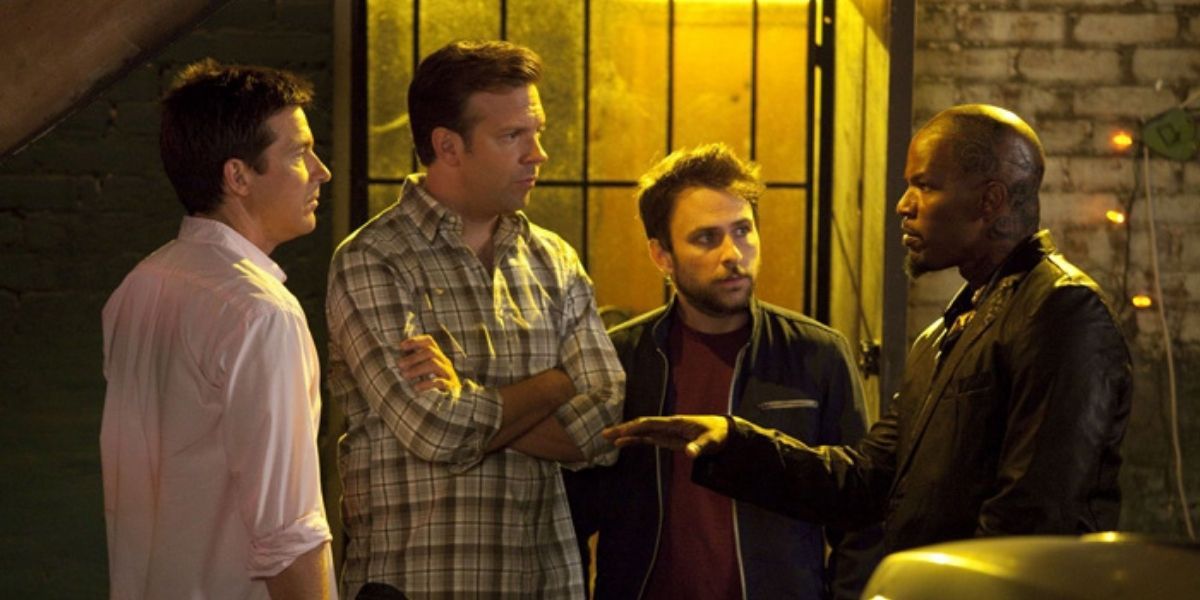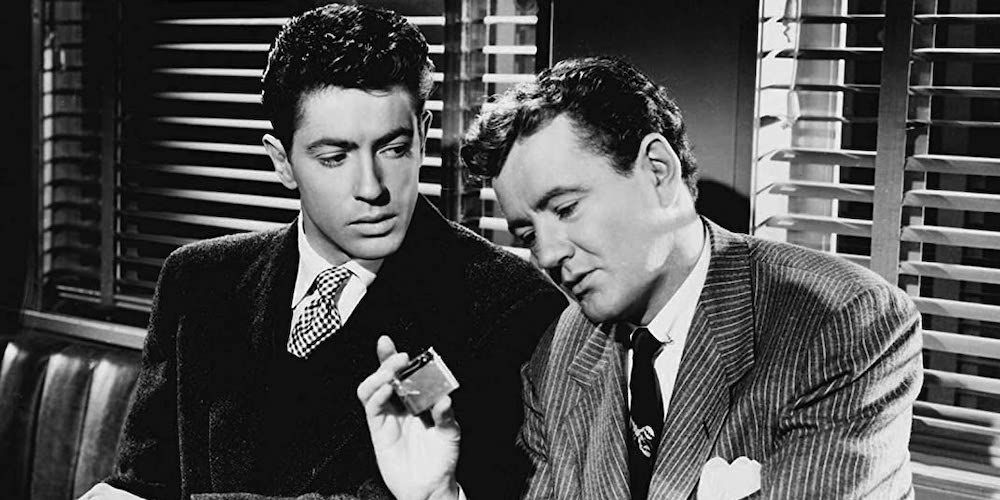The films and style of Alfred Hitchcock are regarded with high honor in the canon of cinema, and rightfully so. However, this can sometimes negate the sheer entertainment value of his work. The Master of Suspense had a populous touch, which allowed his films to be accessible by many while still being smart and thought-provoking. Traces of Hitchcock are identifiable in modern films of all genres and gravity, from horror to thrillers. However, you probably wouldn't expect to find so many Hitchcokian troops in a big-budget studio comedy starring Jason Sudeikis. And yet, that's exactly the case with Horrible Bosses, a film that is not a direct remake of a Hitch film, Strangers on a Train, but is substantially indebted to the director's work.
The Striking Similarities Between 'Strangers on a Train' and 'Horrible Bosses'
To find similarities between these two movies, one need only look to the basic plot. The 1951 film centers around two strangers, Guy Haines (Farley Granger) and Bruno Antony (Robert Walker), who meet on a train and learn that they can cooperate to get rid of respective problems in their lives. Under the influence of Bruno, a sociopath, he convinces Guy, an amateur tennis star, to "swap murders," so that no motive can be attributed to a party. In the 2011 film, three friends, played by Jason Bateman, Charlie Day, and Jason Sudeikis, all frustrated by their unpleasant relationship with their respective bosses, conspire a plan to have their bosses murdered. Horrible Bosses stays true to Strangers on a Train's depiction of white-collar urbanites who succumb to the temptations of violence in an attempt to alleviate the stress caused by unfavorable people. Having said that, the former fails to entirely live up as an homage to the latter, as Hitchcock was committed to unveiling the psychological depravity of the characters and situation at hand. To no fault of anyone, including Bosses director Seth Gordon, his film is designed for laughter.
Hitchcock's work is on the mind when watching Horrible Bosses, as there is an overt reference to Strangers on a Train in the film. This is seen when Sudeikis' character remarks that the plan to swap murders, suggested by their "consultant," played by Jamie Foxx, matches the premise of the Hitchcock classic. Day's character subsequently mistakes it for the "Danny DeVito movie," referring to Throw Momma from the Train. The everyday nature of the dramatic scenario, expressing animosity toward your boss, is a template that Hitchcock would utilize to examine the tendency toward violence hidden within average people. The friends' plan goes awry quickly, running haywire as a result of a string of twists and turns. Through various unexpected circumstances, all three succeed in their goal of removing the albatross around their necks (one murdered, one imprisoned, and one blackmailed into submission).
Alfred Hitchcock's Timeless Influence on Cinematic Language
Hitchcock's thematic template is prevalent in all genres of film today. His namesake is used to describe basic tropes found in thriller movies. Hitchcockian elements that are universally identified among the film-going public include an innocent person wrongfully accused of a crime or mistaken identity, a restrictive sole location setting, a MacGuffin plot device, and a shocking narrative twist. Because of his critical and widespread acclaim, Hitchcock's language has remained in indie arthouse films and franchise entertainment. Strangers on a Train, due to its dissections of the business-like banality of employing murder to solve annoyances, subconsciously made Horrible Bosses accessible to a mass audience 60 years later.
Hitchcockian text has been infused, perhaps inadvertently, into studio comedies for decades, and would continue to be if not for the current dormancy of the genre in the industry. Before Horrible Bosses, the 1987 comedy Throw Momma from the Train operates even closer to a Hitchcock homage. In his theatrical directorial debut, Danny DeVito, starring alongside Billy Crystal, expanded upon the absurdity of Strangers while staying true to the film's seedy mischief. While not a traditional comedy in the sense, Gone Girl is pure Hitchcock beyond its basic plot. The dumbfounded, deer-in-the-headlights aurora of Ben Affleck's character would have been just as suited to Jimmy Stewart 60 years prior.
Hitchcock Had an Underrated Sharp Sense of Humor
The threads of Hitchcockian influence in Throw Momma from the Train and Horrible Bosses ought to cement the director's legitimacy as a genuine comedic voice. His twisted sense of humor is often the unsung hero of his classics, even when it is buried under chilling suspense and the psychological exploration of humanity's obsession with murder. Similar to the comedic undertones of horror, Hitchcock finds simmering absurd humor in these ideas. In Strangers on a Train, the Bruno character's grand epiphany of exchanging deeds with another person to avoid any suspicion is handled with enough farce to make the story seem ridiculous, but Hitch's sinister character work and mood vault it into the canon of great film noir. Following Guy as he learns how to be a criminal can only help but trigger chuckles from the viewer.
Cinematic influences are packaged in many forms and transpire in the most surprising instances. On the surface, a film like Horrible Bosses has no business being mentioned in the same breath as Alfred Hitchcock or Strangers on a Train. This is not to claim that this goofy comedy is the direct heir apparent to the classic director's filmography, or that it aspires to the same heights as Vertigo or Psycho, but the film is an insightful demonstration of the implicit inspirations that films take on. If anything, the popularity of Horrible Bosses and the praise it received for its ingenious premise is a lesson to anyone hesitant to dive into classic cinema. Chances are, there is a movie you enjoy and revisit routinely whose DNA is indebted to the Master of Suspense.




.jpg)